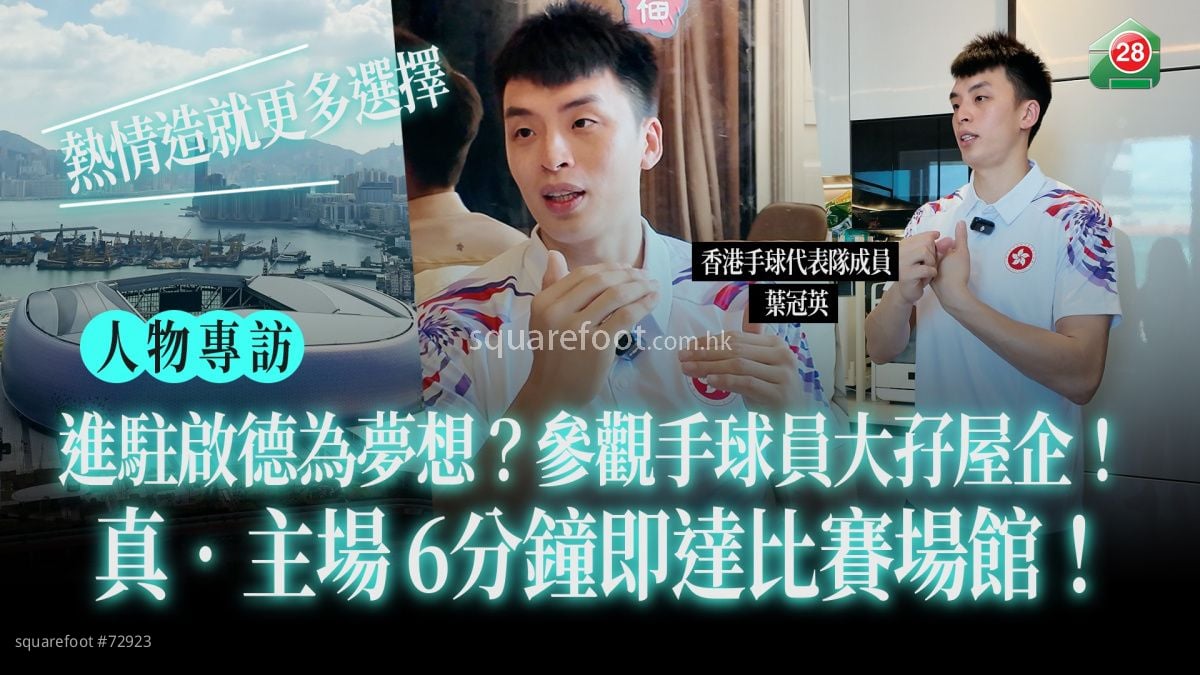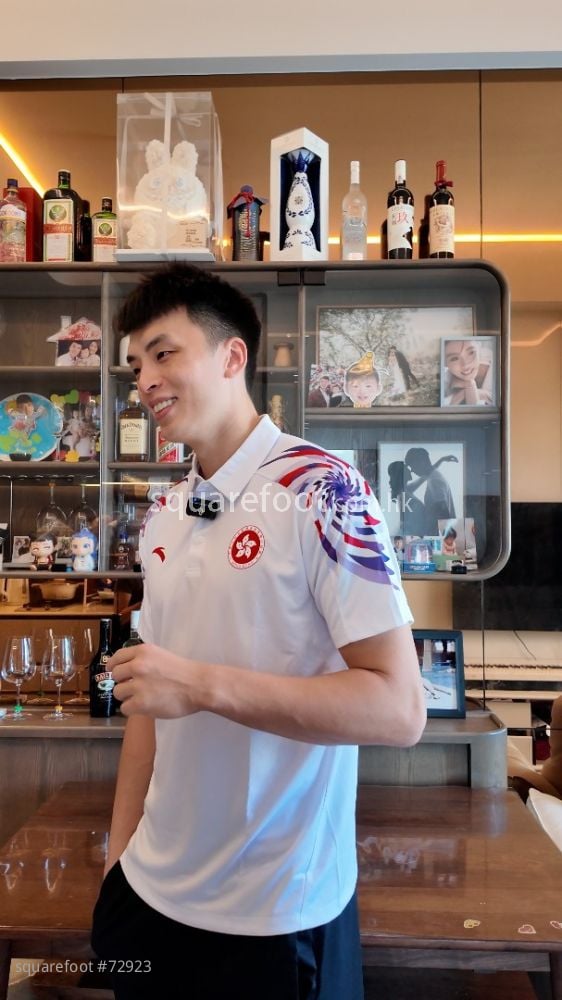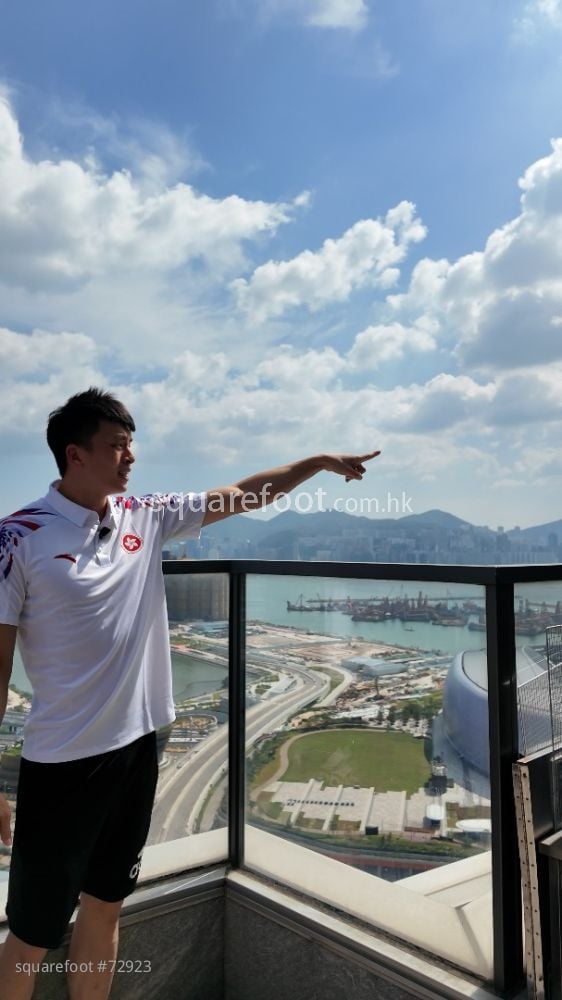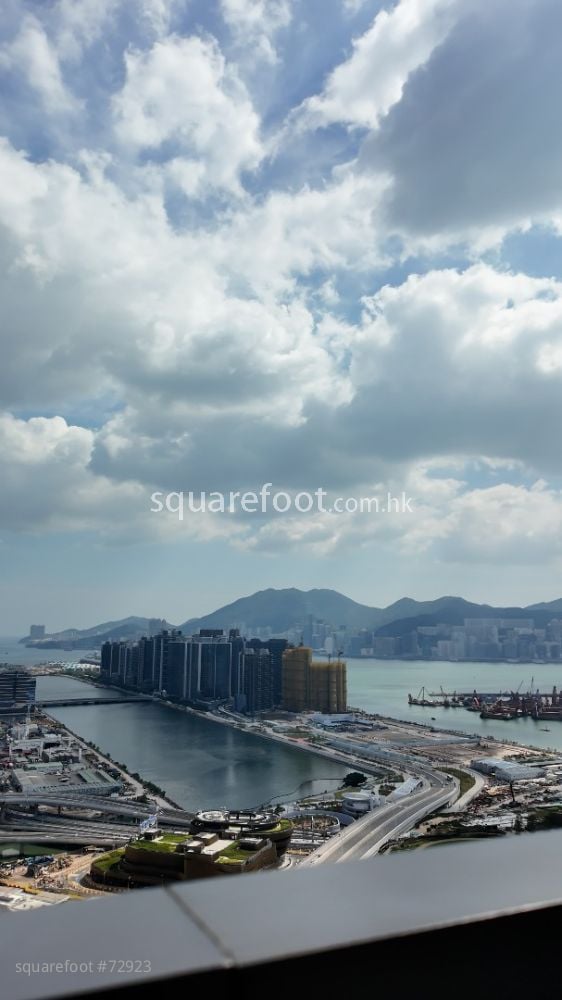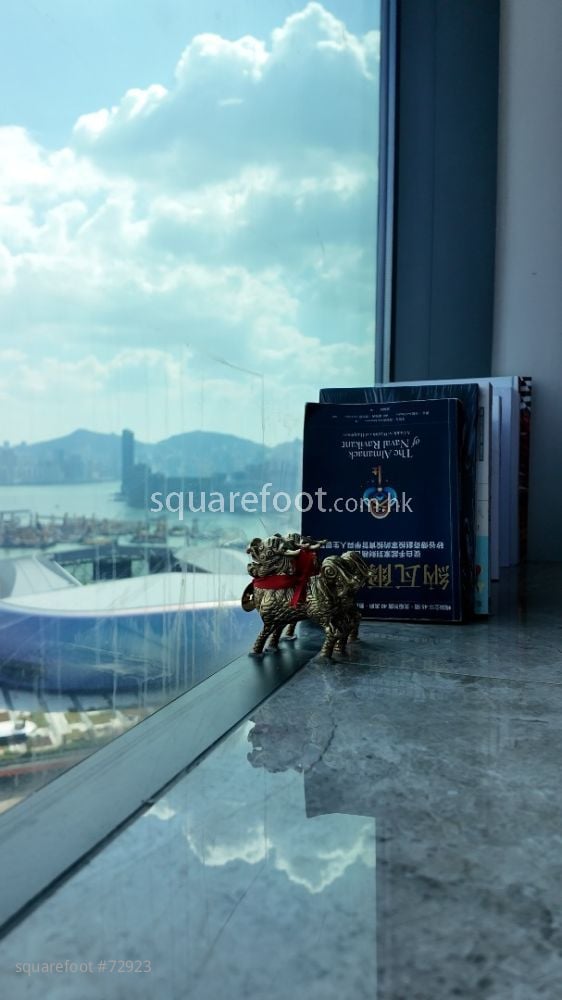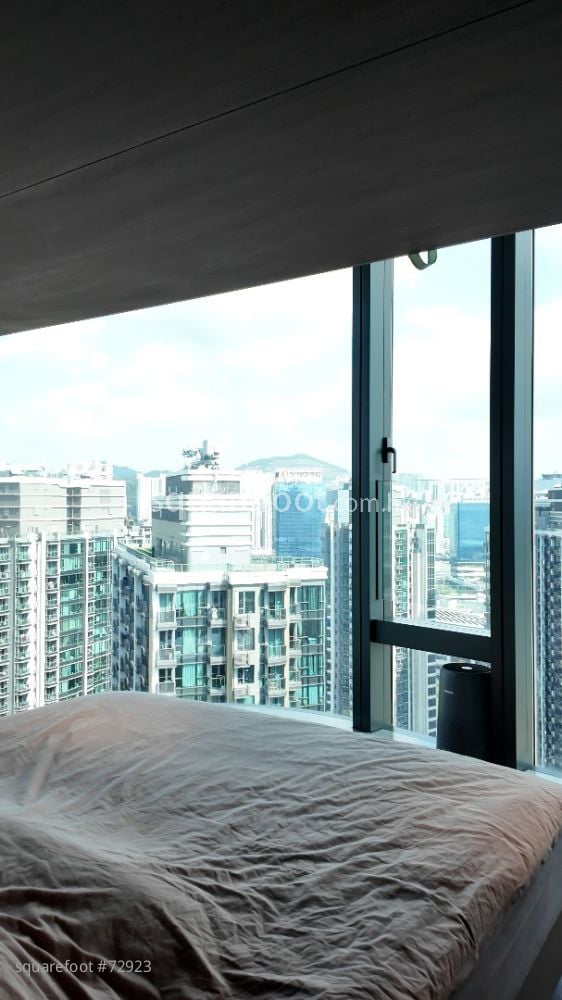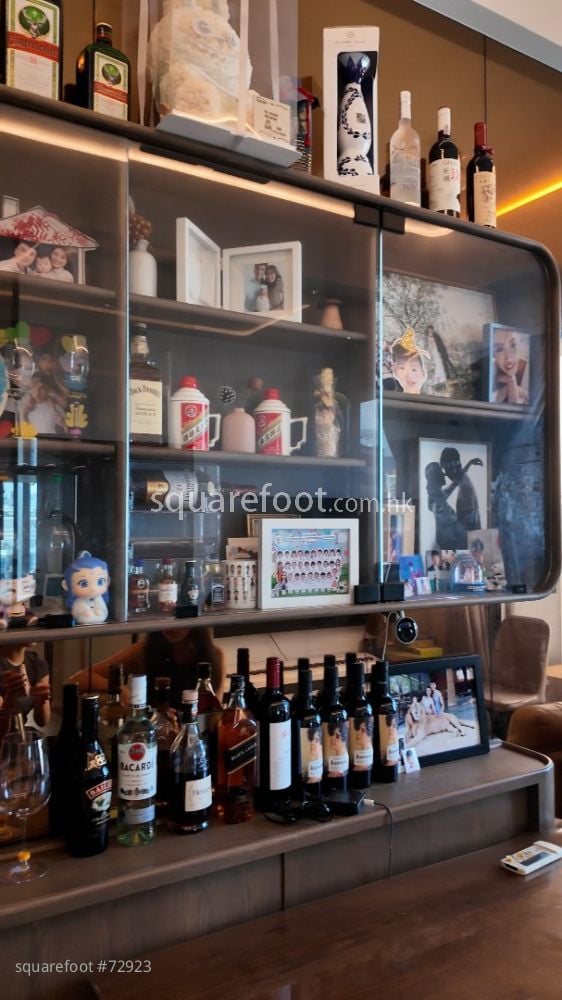Earlier this year, Olympic gold medalist fencer Edgar Cheung Ka-long spent over HK$16 million to purchase a three-bedroom apartment in the St. Martin development in Pak Shek Kok, paid upfront. For Cheung, it was another milestone in life—a step that seemed only natural.
But for most Hong Kong athletes, pursuing their dreams while securing a stable living and finding a place to call home has never been an easy journey. Take the Hong Kong handball team as an example—players receive just HK$4,000 in monthly allowance while juggling full-time jobs and intensive training. Behind every victory lies countless sacrifices and difficult life choices.
This time, we turn the spotlight on Addy Ip Kwun-ying (“Di-ying”), a member of the Hong Kong men’s handball team. He wears two hats, balancing his responsibilities as both a full-time physiotherapist and an athlete. Three years ago, he purchased a high-rise special unit at The Henley II in Kai Tak. What seemed like an unattainable dream of homeownership was made possible through his passion and unwavering determination.
Handball Players Receive A Monthly Allowance of HK$4,000
"Every athlete dreams of playing their sport full-time when they’re young," says Ip. "It’s not just about sports—any professional field that aims for the top requires full dedication."
With a wry smile, he jokes, "Look at Blackpink—they’re not juggling music while working other jobs to make a living."
However, being a full-time handball player in Hong Kong is far from realistic. Ip first came into contact with handball in sixth grade, joined the youth team at 14, and entered the senior representative team at 18. In 2010, he represented Hong Kong for the first time at the Guangzhou Asian Games. But when the Covid-19 pandemic hit, Hong Kong did not send a team to the National Games, and training came to a halt. At that point, he had no choice but to retire and focus on his career in physiotherapy.
Fast forward to 2025, the handball team’s dream of competing in the National Games has been reignited. Determined to help the Hong Kong team achieve new heights, Ip made the bold decision to temporarily leave his job and even pay out of pocket to train in Beijing, all for the chance to bring success to the team.
Embracing Challenges: Cherishing Every Opportunity to Compete
When asked about his reduced income, Ip candidly admitted, "Yes, my earnings have decreased, but this is only a temporary sacrifice. You can work for a lifetime, but an athlete’s career is short. I want to seize this opportunity, which is why I decided to return to the court."
Even when representing Hong Kong, playing handball full-time is almost impossible locally. Since handball is not classified as an elite sport by the Hong Kong Sports Institute, athletes are not entitled to salaries. It wasn’t until 2018, when the government launched the Development Programme for Team Sports, that the handball team was included, and each player began receiving a monthly allowance of just HK$4,000.
According to media reports, 11 out of the 12 players on the Hong Kong team for this year’s National Games had to resign from their jobs to compete. Ip explained, "Many of my teammates have full-time jobs as teachers, warehouse workers, or firefighters. To train overseas, they have to take leave. Sometimes they’re able to go, but the next time, they might not be."
When discussing challenges, he pointed out that the toughest part is breaking into the "elite" category from the "non-elite" level. "If we don’t perform well in competitions, we don’t get resources. But our opponents are often full-time athletes with access to funding, creating a vicious cycle."
Training time is a clear example of this disparity. Handball relies heavily on scientific training methods, but the Hong Kong team’s schedule pales in comparison. Mainland China’s full-time athletes train twice a day, three hours per session, five and a half days a week. In contrast, the Hong Kong team’s weekly training hours are equivalent to what their mainland counterparts achieve in just three to four days. This gap in training leads to a noticeable difference in physicality—mainland players are taller, stronger, and fitter, with physical fitness being the biggest disparity.
Even so, Ip never complains or plays the victim. Instead, he focuses on finding opportunities within the gap between amateurs and professionals. “It’s all about mindset and passion. Our only advantage is our mentality. For them, playing handball is a job.”
During his training in Beijing, Ip stood out as a unique figure in the eyes of mainland Chinese players. "They asked, ‘Why do you play handball if you don’t earn money? If there’s no money, why do you train? What’s the benefit if you win? Do you get a bonus?’ And I’d reply, ‘Nope.’" He laughed and added, "They found it hard to understand why amateur athletes dedicate themselves purely out of passion."
While "mindset" may not sound like a scientific explanation, the Hong Kong team has consistently achieved remarkable results despite limited resources. Twelve years ago, they reached the National Games quarterfinals for the first time, finishing seventh. Eight years ago, they improved to sixth place. This year, they made history by breaking into the top four. On November 2, during the group stage, the Hong Kong team narrowly defeated Shanghai by one point, with Ip being named the Most Valuable Player of the match.
Turning Challenges into Strengths: A Journey Fueled by Passion
Can the so-called “gaps” in life, when viewed from a different perspective, actually become advantages? For Ip, this passion not only fuels the Hong Kong handball team’s drive to explore new possibilities on the court but also serves as a source of motivation for his professional growth.
Though he doesn’t have a grand life blueprint, Ip is crystal clear about his priorities, with "priority" serving as the guiding principle of his journey. Once he sets a goal, he goes all in. For example, after completing the Asian Games during his final year of high school, he stepped away from handball for a year and a half to focus solely on preparing for his A-level exams, which ultimately led him to the physiotherapy program at Hong Kong Polytechnic University. Later, when the pandemic halted the National Games, he shifted his focus to his career, building his own physiotherapy team in just five years.
Even during the pandemic, when competitions came to a standstill, Ip had a secondary income stream. “Luckily, I found my way into physiotherapy, which is also related to sports,” he said. When it comes to financial planning, he admits he doesn’t have a detailed strategy but has noticed that his life tends to shift every five years: he became a Hong Kong team athlete at 18, earned his physiotherapy license at 23, started his own business at 28, and returned to full-time handball at 33. Laughing, he credits his physiotherapy career for supporting his dreams, noting that his semi-professional athletic career has actually given him more flexibility and freedom in life.
“At the time, my goal wasn’t to make more money—it was just to be a good physiotherapist. The pandemic wasn’t something anyone could have predicted, and my career evolution didn’t follow a strict timeline.” For Ip, financial planning is about balancing life, enjoyment, and the future. In his younger years, he wasn’t interested in partying, getting rich, or investing. Instead, he focused on developing his passions. Even his decision to buy property was driven by practical needs rather than investment purposes: “It was because I got married and had kids that I decided to buy a home—it was never about investment.”
In 2022, without any financial help from his family, he and his wife purchased a special high-rise unit at The Henley II in Kai Tak. The unit spans 575 square feet, along with a 311-square-foot rooftop.

What makes Ip’s home especially unique is the panoramic view from the master bedroom. The 270-degree vista overlooks all of Kai Tak, with sights of the iconic Lion Rock, Fei Ngo Shan, and the MacLehose Trail mountain range.

Most impressively, he can see the Kai Tak Sports Park from his window. Living in Kai Tak gives him a literal “home-court advantage,” as it’s only a six-minute walk from his home to the competition venue. He has also made practical use of the unit’s high ceilings, extending the space in his daughter’s room and creating additional storage in the hallway.
When asked why he chose Kai Tak, his decision was closely tied to his identity as an athlete. He joked that his pursuit of a National Games medal inspired him and his wife to move to Kai Tak. “Living here, I can see the Kai Tak Sports Park every day—it naturally motivates me to train harder and compete better.”
He also appreciates the vibrant energy of the Kai Tak area: “There’s a mix of culture, sports, and green spaces here. In recent years, we’ve seen the opening of Sogo, Airside, retail centres, and the sports park. Every year, there’s something new. The changing landscape feels like progress—it’s inspiring.”
Ip admitted that his decision to buy the property was somewhat impulsive. At the time, he was young and eager to pursue excellence, so he chose the then up-and-coming Kai Tak area. With a laugh, he recalls, “The advertisement for the development said, ‘The best things come together.’ Since I was already buying, I thought, why not go for the most prime location? So I picked The Henley. And if I was buying, why not go for a sea view? So I chose the top floor. Maybe it’s just the athlete mindset—always striving to be number one and climbing higher. That’s how I ended up with this unit.”
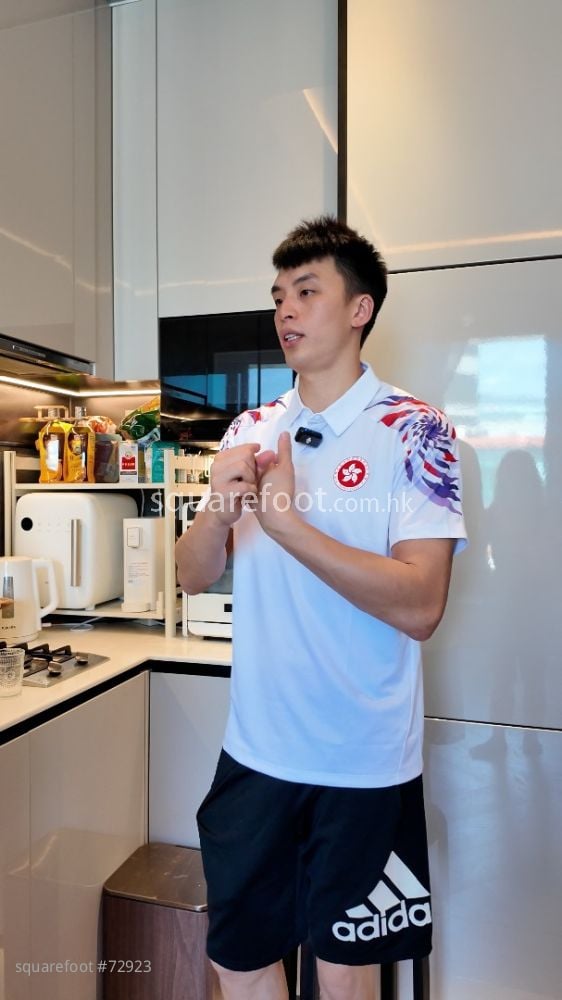
In recent years, property prices have fallen by 30% from their peak, and he admits, “Of course, I’ve felt the impact of the market fluctuations.” Looking back, he acknowledges, “I could have made a smarter purchase, as I did buy at the peak.” However, he emphasises that the decision wasn’t an investment—it was driven by the need to build a home for his family.
At the end of the interview, Ip reflected on his humble beginnings, growing up in a family of four in a public housing estate, with a combined household income of just over HK$10,000. Despite their modest means, his parents provided a loving environment and instilled strong values in him. His father, also an athlete, taught him an important lesson early on: “The greatest strength of an athlete isn’t about winning, but about not fearing loss, because no one can win forever.”
Now, living in Kai Tak, Ip feels grateful for his good fortune and sees a connection between the spirit of Hong Kong and the mindset of an athlete. “Hong Kong is a fiercely competitive city, and athletes are used to striving, competing, and pushing for excellence—that mentality fits Hong Kong perfectly.”
He elaborates, “Take Kai Tak as an example. It’s always in the spotlight, whether it’s debates about public housing or criticism of the planning. This place is constantly under scrutiny and in the middle of controversy. I’ve grown up with competition, and without that mindset, I wouldn’t be able to adapt to an environment like this.”
Today, Hong Kong’s handball team has made history by reaching the semi-finals of the National Games, facing off against professional players from across China. This achievement has been built on the resilience and determination of the team’s players, who have worked tirelessly for over a decade to reach this milestone.
For Ip, this tournament represents both a milestone and a farewell. “This National Games will be my last—I’m retiring after this. I’m already 33 years old. But if we can perform well this time, maybe the next generation of handball players will have the chance to go professional, maybe even play full-time here in Hong Kong.” Having witnessed the evolution of Hong Kong’s handball scene over the past decade, Ip hopes that his years of dedication have planted seeds of change for the future.
One of his biggest hopes is for the team to secure a stable training venue. “What athletes in other places consider basic—a dedicated goalkeeper coach, a head coach, a fitness coach, or even a foreign coach—we know it’s not a given. It’s something we’ve fought for, step by step. Maybe one day, a young athlete will find it hard to believe that having an indoor training venue wasn’t always a given.”
As he prepares to leave his career as a player and return to the workforce, Ip is optimistic that the team’s strong performance at this year’s National Games will draw more attention to the sport of handball in Hong Kong. The seeds sown by previous generations of athletes will one day bear fruit. And perhaps in the not-too-distant future, more young players will take to the new courts in Kai Tak, carrying forward the dreams of those who came before them.
Like
| Property Type | Price | Ads Period |
|---|---|---|
| For Sale Property | ||
Normal Listing Typical One | HKD:1000 (or Hsemoney:1000) | Valid:90 days |
Golden Top Listing Higher position than Top listing 2-3times better performance | HKD:3000 (or Hsemoney:3000) | Valid:60 days |
| Rental Property | ||
Normal Listing Typical One | HKD:1000 (or Hsemoney:1000) | Valid:80 days |
Golden Top Listing Higher position than Top listing 2-3times better performance | HKD:3000 (or Hsemoney:3000) | Valid:60 days |
